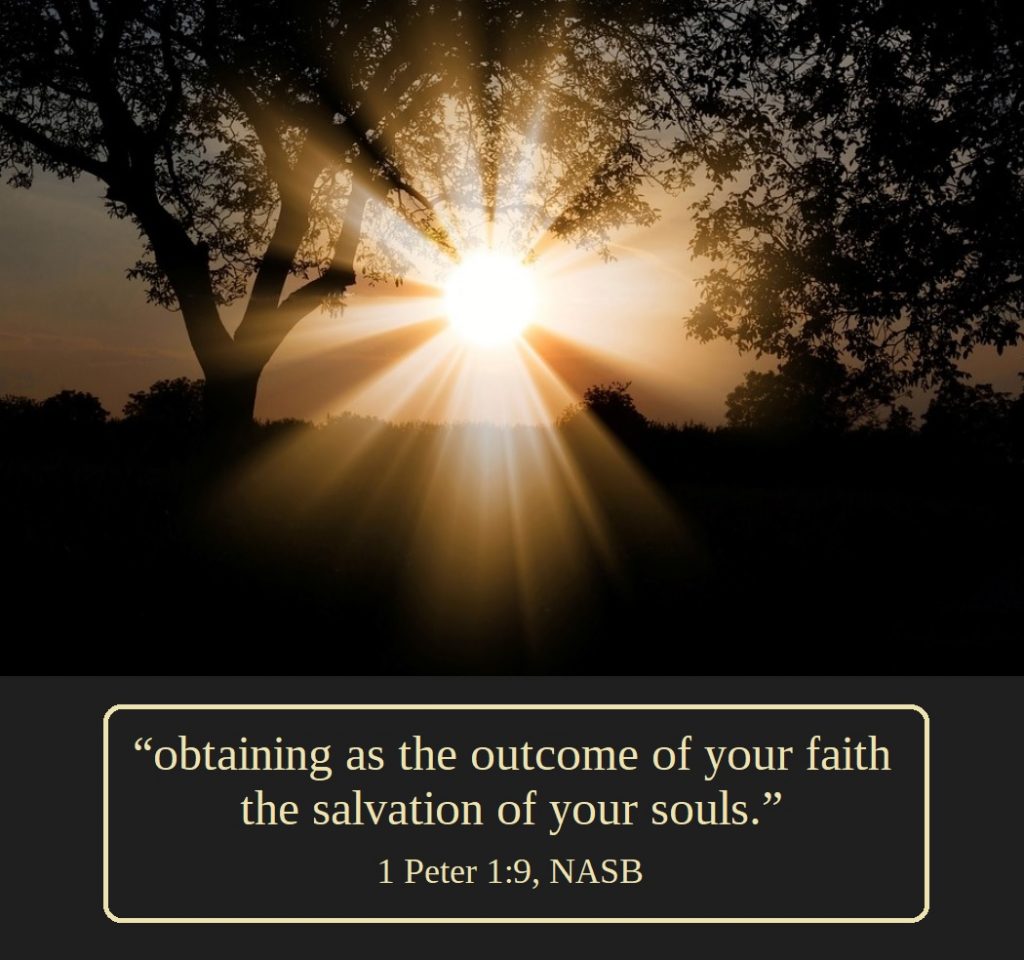“Go therefore and make disciples of all the nations…teaching them to observe all that I commanded you; and lo, I am with you always, even to the end of the age” (Matthew 28:19-20, NASB).
——————–
Contents
1) Reaching Forward (Jon W. Quinn)
2) Sword Tips #41 (Joe R. Price)
——————–

-1-
Reaching Forward
Jon W. Quinn
“Not that I have already obtained it, or have already become perfect, but I press on in order that I may lay hold of that for which also I was laid hold of by Christ Jesus. Brethren, I do not regard myself as having laid hold of it yet; but one thing I do: forgetting what lies behind and reaching forward to what lies ahead, I press on toward the goal for the prize of the upward call of God in Christ Jesus” (Philippians 3:12-14).
Solomon said, “The end of a thing is better than its beginning” (Ecclesiastes 7:8). Is that the way we feel about life itself? It ought to be! And that is true even if life here is great. It may be, but faith says the life to come is better.
There are several metaphors for how we feel about life in the hymns we sing. One hymn speaks of “laying our burdens down” but another says, “I’d like to stay here longer than man’s allotted days.” Interestingly, either one may be true in a Christian’s life at different times. As a basic metaphor for life, many people choose between the following:
1. Life is a problem: it is a burden that we wish to lay down. It is a harsh ordeal through which we must go. It is a “rat race” which we so look forward to being over. Do we anticipate the end of life as merely the end of the struggle and the difficulties of this life and this world??
2. Life is an opportunity: it is a growth process. It is doable and we can be successful at it. There is a reachable goal and no righteous step we take toward it is wasted. Life’s events, good and bad, have their purpose and meaning, even when we cannot discern what they are. Do we think of life as a wonderful gift that moves us ever closer to something even better?
Which of these two perspectives we choose has a big impact on the quality of our lives. While it is easy to allow ourselves during the dark days of trial to be overwhelmed by the first perspective, it is the second perspective that the Lord would prefer we have.
The Scriptures deal much with heart and attitude. It is important because our attitude about how to approach the end of life will greatly effect how we live each day. Only when we think that no righteous effort on any dark day will be wasted will our lives take on the character and strength they ought to have. We will have the strength to “press on toward the goal for the prize of the upward call of God in Christ Jesus.”
Our text teaches several things. Consider them, as we acknowledge that we are headed toward something worth having.
Our Goal is Worth It!
The word “goal” means “end, outcome, culmination, the purpose toward which something moves.” The Scriptures teach that the “goal” or “end result” of our being freed from sin and living as faithful disciples serving Christ is “eternal life” (Romans 6:20-23). However, the end result of a life of sin results in living free from righteousness… we get to live how we want to… free! Great! But not as great as Satan would like us to believe because the outcome is eternal death.
Our confidence that we can reach our goal keeps us reaching until we have it. We must “hold fast” to our confidence until the end (Hebrews 3:6).
Salvation is the goal of our faith (1 Peter 1:9). Peter writes, “obtaining as the outcome of your faith the salvation of your souls.“ Understand that Christianity is a goal-oriented way of life. We must daily keep our eyes on Jesus, who also was “goal oriented” as He lived His life: “Therefore, since we have so great a cloud of witnesses surrounding us, let us also lay aside every encumbrance and the sin which so easily entangles us, and let us run with endurance the race that is set before us, fixing our eyes on Jesus, the author and perfecter of faith, who for the joy set before Him endured the cross, despising the shame, and has sat down at the right hand of the throne of God“ (Hebrews 12:1,2).
“Good” is not Enough When We Can Have the “Best”
By nature, we strive to grow, to make progress, to work toward goals (2 Peter 1:5-8). We need to have significant goals in the daily living of life as Christians. It is quite inadequate to have goals such as “Get up and go to church” because the Lord expects so much more of us than that.
Often our goals are not big enough – we underestimate what is possible and have too little vision or faith or commitment (Philippians 3:11-13). Many of our limitations are put there by ourselves. This is true whenever and wherever the Lord says, “I want you to do this.” And we respond “I can’t!”
At other times our goals are too general and vague. “I’m going to do better” is a worthy goal, but too vague. What will it take to “do better”? What will it take to go beyond the mediocre and excel? (2 Corinthians 13:5; James 1:4,5). Concerning my life before God as a father, mother, husband, wife, child, member of the body… Let the goals be so high that they’re impossible, because with God even the impossible becomes possible. There’s an old saying, “Aim low and you’ll hit your target.” We need to aim high and require more of ourselves, not less.
Why We Can Achieve the Best and Reach the Goal
Because Jesus, the “Beginning and the End” is the cause of our hope, we are certain of victory that comes by faith (Revelation 22:13). Because Jesus died for our reconciliation we have confidence (Colossians 1:16,17). We, in Christ, overwhelm the adversary and crush his weapons (Romans 8:1; 31-39). “If God be for us, who can be against us?” It is the Lord who says to His faithful children, “Here is your goal; I am with you; nothing is impossible for Me!”
Conclusion
Though life’s ultimate goal is reachable, and God has seen to it that we can win the victory, it is not automatic. Paul said he had not obtained it yet, but that he continued to press on so that he could. So, what is your vision? What is your life all about? What is it that you are reaching for today?
“Not that I have already obtained it, or have already become perfect, but I press on in order that I may lay hold of that for which also I was laid hold of by Christ Jesus. Brethren, I do not regard myself as having laid hold of it yet; but one thing I do: forgetting what lies behind and reaching forward to what lies ahead, I press on toward the goal for the prize of the upward call of God in Christ Jesus” (Philippians 3:12-14).
Based on outline by Gary Henry
— Via The Bradley Banner (from the Bradley Church of Christ), May 15, 2005
——————–

-2-
“And take…the sword of the Spirit, which is the word of God” (Eph. 6:18).
Sword Tips #41
Joe R. Price
Now the purpose of the commandment is love from a pure heart, from a good conscience, and from sincere faith. (1 Timothy 1:5)
Love is the purpose of God’s commandments: love for God and love for others. It is sad and so wrong when people think the necessity of obedience minimizes one’s love for God.
Jesus said, “if you love Me, keep My commandments”; and again, “If you keep My commandments, you will abide in My love” (John 14:15; 15:10).
The commandments of God produce good things in your life when you obey them in faith.
First, obeying God comes from a “pure heart” toward God. Obedience is not rote performance; it is the deliberate expression of love’s purity.
Second, obedience shows a good conscience toward God. When it is trained by God’s truth, your conscience will commend you when you obey God.
Third, obeying God’s commands is the action of sincere faith. Love God today by keeping His commandments – not as a burden you must bear, but as the full expression of your faith in Him (1 John 5:3).
——————–
The Steps That Lead to Eternal Salvation
1) Hear the gospel — for that is how faith comes (Rom. 10:17; John 20:30-31).
2) Believe in the deity of Jesus Christ, the Son of God (John 8:24; John 3:18).
3) Repent of sins. For every accountable person has sinned (Romans 3:23; Romans 3:10), which causes one to be spiritually dead (Ephesians 2:1) and separated from God (Isaiah 59:1-2; Romans 6:23). Therefore, repentance of sin is necessary (Luke 13:5; Acts 17:30). For whether the sin seems great or small, there will still be the same penalty for either (Matt. 12:36-37; 2 Cor. 5:10) — and even for a lie (Rev. 21:8).
4) Confess faith in Christ (Rom. 10:9-10; Acts 8:36-38).
5) Be baptized in water for the remission of sins (Mark 16:16; Acts 2:38; 22:16; 1 Pet. 3:21). This is the final step that puts one into Christ (Gal. 3:26-27). For from that baptism, one is then raised as a new creature (2 Cor. 5:17), having all sins forgiven and beginning a new life as a Christian (Rom. 6:3-4). For the one being baptized does so “through faith in the working of God” (Col. 2:12). In other words, believing that God will keep His word and forgive after one submits to these necessary steps. And now as a Christian, we then need to…
6) Continue in the faith by living for the Lord; for, if not, salvation can be lost (Matt. 24:13; Heb. 10:36-39; Rev. 2:10; 2 Pet. 2:20-22).
——————–
Tebeau Street
CHURCH OF CHRIST
1402 Tebeau Street, Waycross, GA 31501
Sunday: 9 a.m. Bible Classes and 10 a.m. Worship Service. Congregational Song Service: 5 p.m. for every first Sunday of the month.
Wednesday: 7 p.m. Bible Classes
evangelist/editor: Tom Edwards (912) 281-9917
Tom@ThomasTEdwards.com
https://thomastedwards.com/go/all.htm (This is a link to the older version of the Gospel Observer website, but with bulletins going back to March 4, 1990.)